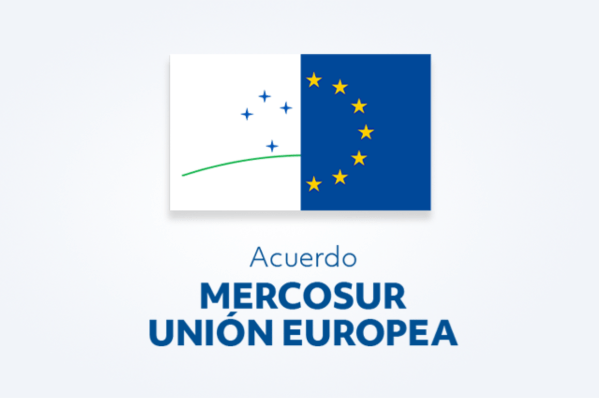Telefónica Public Policy & Telefónica España Regulatory teams
 Recently I have participated in some interesting conferences and conversations which all circled around one fundamental question: How will the Internet develop and what are the challenges going forward? In short: Internet – quo vadis?
Recently I have participated in some interesting conferences and conversations which all circled around one fundamental question: How will the Internet develop and what are the challenges going forward? In short: Internet – quo vadis?
My most important takeaway has been that although today we have already 2.7 Billion Internet users worldwide, so much remains to be done: around 4.5 Billion people across the global still do not have access to the Internet. In other words: The glass is still two-third empty!
I believe therefore that the grand vision needs to be: Get everyone connected to the Internet! And this means, in practical terms, that we need to get every one of these unconnected human beings two things: A smartphone, instead of a simple feature phone, and a mobile broadband connection, instead of just voice telephony.
It is also by now well understood that the Internet has an important horizontal effect that is profoundly changing our economies and societies for the better: making economies more efficient and competitive and societies more open and democratic. The Internet plays a key role in the pathway to a global economic recovery, is a catalyst for social and economic progress at micro and macro levels, a “key economic infrastructure, revolutionizing business and serving as a platform for innovation” as the OECD Internet Economy Outlook 2012 pointed out, and moreover it offers huge opportunities to create millions of jobs in developed and developing countries and sustainable economic growth. Therefore many public administrations and state governments have understood that to get there it is crucial to make the right policy choices to attract investments by the private sector.
Before this background, I believe that the debates around the “Future of the Internet” can be clustered in three main challenges:
First, we need to understand that the Internet is today a huge marketplace (arguably the biggest) and some quite different business models are involved across the so-called Internet value-chain. The explosive growth of Internet traffic due to video streaming has been a kind of catalyst to bring these diverging interests to the surface: This massive growth of data is creating on the one hand a capacity problem for the connectivity network and its all-you-can-eat subscription-based model, but is on the other hand good news for the advertisement-based model of Internet services as it means more people spend more time looking at their screens, watching videos.
I think a sustainable solution needs to link both: Data traffic growth needs to incentivize investments for better and more powerful networks, especially for mobile access. Otherwise ultimately the customer experience will be bad, to the detriment of both, Internet service and access providers. We will need to find a fair and sustainable model, a model in which all players of the Internet Ecosystem can benefit from data growth and imbalances and asymmetries are limited as far as possible.
It is likely that collaboration will be the way forward to guarantee such a sustainable and balanced model for the Internet. However, we have already seen appetite by public authorities to step in when market forces fail to deliver fair outcomes. The take-away is: Economic and commercial incentives need to exist in all parts of the Internet value chain, not just in some, or the development of the whole ecosystem cannot be sustainable.
Second, from an Internet users´ perspective the Internet is getting constantly more restricted. Just one example: When a customer changes from one smartphone, say an iPhone, to another which runs on Android, he cannot take his Apps with him to the new phone. Why? The reason is that both applications run on different, proprietary operating systems which are not interoperable. Many other example of such “lock-in” effects exist on the Internet and there seems to be a tendency that proprietary systems, that means, systems that belong just to one owner or company, are winning over open standards and interoperable systems.
I was therefore proud to see that Telefónica announced recently a new cooperation for a truly open mobile Operating System with Mozilla Foundation. Together with Mozilla and other partners we developed Firefox OS because we are convinced that such an open system will not only enhance our customer’s experiences but can also help in bringing down prices for smartphones – which is, as already mentioned, crucial to get the Internet to everyone. And we are well on track with Firefox OS: This year Vivo, our Brazilian mobile subsidiary, will release the first devises running with Firefox Os in Brazil, one of the biggest mobile markets in the world.
The third challenge is how to protect fundamental rights of Internet users, such as privacy, security and freedom of speech. As the Internet is a global medium, this should be done with global standards; otherwise the enforcement will not be possible or at least very difficult. However, as we know also from the “real world”, protecting such fundamental human rights is a challenge due to different cultures and political systems. I therefore believe that any agreement will need to be broad and respect local cultures and traditions while providing a firm protection of fundamental rights. Maybe in a first step more regional initiatives, for example in Europe, could be a first step and global agreements could follow later on. In any case it is quite probable that established international policy mechanisms that also protect fundamental and human rights in the real world are also the most appropriate one to do so on the Internet.
However, there is something we know for sure when we talk about the future of the Internet: It is changing constantly and its rules are not written yet! All stakeholder will need to work together to keep on writing this fabulous success story called Internet.
So, let´s work together to get everyone connected and find the common ground for keeping the Internet this vibrant, fascinating change catalyst for our economies and societies!








